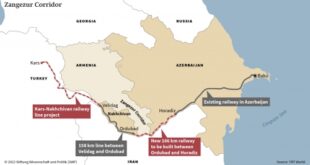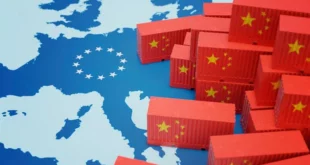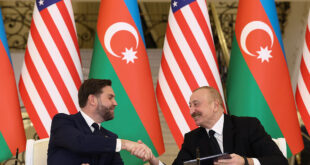Georgia has severely damaged its chances of winning a promise of NATO membership at a summit next April with a crackdown on protests that has shocked even its supporters in the West, diplomats said on Wednesday.No one so far has completely written off President Mikhail Saakashvili’s chances of securing a “Membership Action Plan” (MAP) — the key to subsequent entry — from leaders of the Western defense alliance, due to meet in Bucharest.
But his clampdown on opposition media and heavy-handed crushing of street protests may have given hesitant Western European allies the grounds they need to block a step they fear would exacerbate rising tensions between NATO and Russia.
“He has shot himself in the foot,” said one alliance diplomat of Western dismay at Saakashvili’s imposition of emergency rule, including a ban on independent media and meetings, and a raid on an opposition television station.
“MAP in Bucharest was ambitious even before this happened. That is a pretty big step now especially for countries nervous of the Russian impact,” said the diplomat, who predicted any move would now be postponed by a year at least.
Saakashvili’s backers in the United States and ex-communist eastern Europe, who with President George W. Bush hailed Georgia “a beacon of democracy” in the Caucasus, have slammed measures that he contends were needed to halt a Russian-backed coup.
In unusually sharp criticism, NATO Secretary-General Jaap de Hoop Scheffer recalled last week that freedom of expression and of the media were core values for NATO and any would-be member.
Promises to lift the state of emergency on Friday and hold a presidential election on January 5 will only partially reassure Western analysts skeptical of Saakashvili’s talk of Russian coup plots, who note that his critics are mostly pro-Western too.
U.S. Deputy Assistant Secretary of State Matthew Bryza reaffirmed that Washington still backed Georgia’s NATO aspirations but acknowledged during a trip to the country this week that it now faced an uphill task to win MAP at Bucharest.
“Is there some chance? Of course there is some chance,” he told Radio Free Europe/Radio Liberty according to a transcript supplied by the station.
“But a lot has to be done, of course, to get back on track in that way,” he added, noting that Tbilisi had to ensure above all that the January elections will be free and fair.
AUTHORITARIAN STYLE
With Ukraine internally split on whether it wants to join NATO at all, Georgia had appeared a top contender for membership alongside three Balkans states — Albania, Macedonia and Croatia — who missed out on NATO’s big 2004 enlargement to the east.
Saakashvili, a U.S.-educated lawyer and fluent English speaker, won admiration for difficult reforms carried out since coming to power in 2003 on the back of the “Rose Revolution” protests, and secured U.S. favor by sending troops on missions in Iraq and Afghanistan.
Russia’s announcement on Tuesday that it had closed its last military base in Georgia, formally ending a military presence in its small neighbor that lasted more than two centuries, removed a potential sticking-point to membership. Troops or no troops, Georgia remains very much in the shadow of an old imperial master that views it with deep suspicion.
Tensions are ever present. Tbilisi’s restrained response to the falling of a one-tonne Russian missile in a Georgian farmer’s field in August was applauded in the West.
Even before the protests, concerns over Saakashvili’s authoritarian style had been growing.
Western officials visiting the country recently had their program rescheduled at the last minute to include a pet development project of Saakashvili’s and avoid poorer areas of the economy, one diplomat said.
While NATO insists Russia has no veto over its membership invitations, European countries such as Germany are worried that admitting Georgia would worsen ties with Moscow already strained by tensions over Kosovo, U.S. missile shield plans and energy.
Despite a Georgian offer to allow in European election observers, some already question how the January poll can be deemed fair with the media muzzled and the opposition having only a few weeks to find a viable candidate.
“We have to make it clear we are watching the process very closely. The offer of allowing in observers should be taken up in the hope of credible elections come January,” said Nick Grono of the International Crisis Group think-tank.
Saakashvili could still pull a MAP offer out of the bag in Bucharest if the elections are deemed broadly satisfactory. But many in NATO think the step should be postponed until a summit marking the 60th anniversary of the alliance in 2009.
“2009 is looking like the reserve slot now,” said one envoy.
 Eurasia Press & News
Eurasia Press & News



